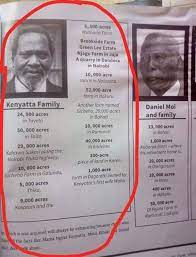LATEST HOT NEWS IN THE ROOM
The Four C's of CBC
- Get link
- X
- Other Apps

Kenya's new Competency Based Curriculum (CBC) focuses on four key skills, called the four C's:
- Communication & Collaboration
- Critical Thinking & Problem Solving
- Creativity & Innovation
- Citizenship
Why Are The Four C's Important?
The four C's were chosen to help students thrive in a changing, digital world. Every subject taught as part of CBC is linked to these four skills. No matter what class students find themselves in, they will be building one or more of the four C's.
They were chosen to fix the shortcomings of the previous education system in Kenya. The four C's build soft skills in students, they improve self-learning and self-efficacy, they emphasize ethics and morality to create strong citizens, and they promote creativity for a changing, digital world.
1. Communication & Collaboration
We work together to speak and realize shared goals.
In the past, Kenyan education has focused so much on exams and performance, that working with others fell by the wayside. The new curriculum reforms by KICD put soft skills at the front of the line. Technological progress means that we're more connected than ever, meaning that soft skills are more important than ever.
2. Critical Thinking & Problem Solving
We observe, evaluate and reason to find solutions.
Before CBC, Kenyan students crammed for exams, memorizing new and old information alike as if it were the key to success. In the 21st century, knowledge of facts doesn't matter much. Now what matters is knowing how to learn new skills, find new information when needed and solve problems where others cannot.
3. Citizenship, Morality & Ethics
We value our community and act with respect for all.
In 2010, The Task Force on Realignment of Education to the Kenya Constitution recommended CBC, in part because the Kenya Constitution called for ethical intervention. Chapter 6 of the Kenya Constitution, The Leadership and Integrity Act, brought new ethical regulation to the government of Kenya. For a democratic republic to function, the citizens much follow an ethical and moral code. Citizenship is a focus of CBC to create a more unified and holistic nation.
4. Creativity & Imagination
We are free to think differently, to create new and valuable things.
The world is changing. In the past, proper direction, hard work and consistency were the main keys to success. But today, creativity and innovation play a larger role. A growing number of jobs are digital and remote, and it has become easier than ever to start an internet business, serving a market on the other side of the planet. Preparing students for the future means opening their mind to new possibilities that don't even exist today.
Why TechLit Africa Teaches The Four C's
TechLit Africa's mission is to teach digital skills to unlock global opportunities for students in rural Africa. In rural Kenya, there are more opportunities available online than there are anywhere locally. The four C's of CBC are designed to prepare students for the very opportunities that TechLit was started to unlock.
- Communication & collaboration are necessary for and more elaborate with remote, digital opportunity. Time-independent communication is more important in digital roles, and now that technical problems can disrupt your every meeting, collaboration and understanding can be the difference between a difficult colleague and a valuable partner.
- Critical thinking & problem solving are daily needs in the digital world, as well as valuable skills for digital roles. The kinds of jobs available are changing faster than ever. New roles are invented every year, and a modern worker must adapt to new problems to stay relevant.
- Creativity & innovation are expected in today's workforce. As hierarchy becomes less rigid in modern organizations, new collaborative environments will take advantage of the creativity & innovation of it's members.
- Citizenship is more than a national imperative, it's a worldwide trend. Global citizenship is a hot-topic in global organizations that provide remote-work opportunities. CSR and ESG initiatives will transform what's required and expected of students after graduation
- Get link
- X
- Other Apps
TOTAL PAGEVIEWS
YOU CAN ALSO SEE MORE IN OUR POSTS
Generational shifts
Uhuru secret team to fix succession by 2022
Is the mission Impossible Implementing the Ndung’u Report in kenya?
Uhuru clueless about PS reshuffle list?
How Idi Amin took Uganda to the brink of war in 1976 after attempts to annex parts of Kenya Territory
Komodo Dragon
Time has come that I must speak the truth
Victor Wanyama Foundation scholarship beneficiaries undergo mentorship
Rachael Ruto commercializes her hobby so as to help women
SOCIAL AND EQUALITY TO ALL

My main agenda is adopting a Gramscian theoretical framework, the five parts of this volume focus on the various ways in which the political is discursively and materially realized in its dialogic co-constructions within the media, the economy, culture and identity, affect, and education. We focus at examining the power instantiations of sociolinguistic and semiotic practices in society from a variety of critical perspectives, this blog focus at how applied political linguists globally is responding to, and challenge, current discourses of issues such as militarism, nationalism, Islamophobia, sexism, racism and the free market, and suggests future directions. No peace, no unity, no coexistence hence all becomes vanity...! It's why the world is oval.







